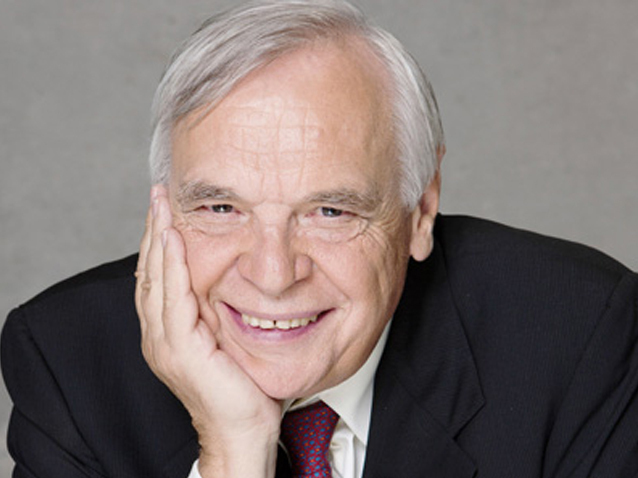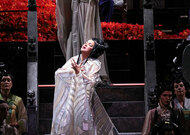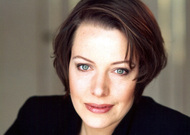 © DR
© DR
LEADER’S VISION - GREAT MUSIC FOR NEW GENERATIONS
Alexander Pereira wakes up every morning with 50 things he wants to accomplish that day. This bodes for a certain degree of frustration when they can’t all be achieved, but the general manager of La Scala is undeterred: ‘‘I always feel I have too much energy,’’ he says.
Pereira was appointed to his current position in June 2014. He had previously served as artistic director of the Salzburg Festival, and before that spent more than two decades as artistic director of the Zurich Opera.
His reputation as an innovative manager was confirmed immediately. Pereira instituted a new program for children’s opera, introduced lowcost tickets to draw an untapped audience of opera lovers, initiated a Puccini cycle and developed programming to explore composers of Italian verismo, the ‘‘realistic’’ style of opera that emerged in the late 19th century, as well as non-Italian composers who have not been well represented at La Scala up till now.
‘‘From the beginning I went in the direction in which I wanted to go,’’ says Pereira. ‘‘I did what I thought was in good faith for La Scala.’’ Children’s opera proved a success. At first, 20,000 tickets were offered to the community for shortened versions of kid-friendly operas like ‘‘Cinderella,’’ and they sold out immediately. The current ticket total is 40,000, and it too is almost entirely sold out. After each performance, the singers and musicians mingle with the audience for more than an hour.
‘‘It was so new for this theater that you had to implement it to prove that it works,’’ says Pereira, noting that the Milanese have ‘‘absorbed this program like a sponge. They gave me the feeling that there is a wonderful framework here for new ideas.
’’ Pereira encountered more reluctance when he introduced a program for low-cost tickets, but implementation again showed the wisdom of his proposal. A ‘‘Turandot’’ performance at half price sold out in two and a half hours. What is significant is that there is no cannibalization of La Scala regulars, he points out. Attendees tend to be people living outside Milan who have never been to the opera house and want to go at least once in their lifetime.
‘‘We may have created the basis for a new audience,’’ says Pereira. He had introduced a similar program in Zurich, and wound up attracting new attendees.
The general manager and his team are planning 15 operas and seven ballets per season, including eight productions to be developed in-house. The programming breakdown calls for roughly one-third new productions, one-third from La Scala’s archives and one-third coproductions new to the Milan audience.
Pereira would like to maintain a balance of 50-50 between Italian and non-Italian operas, and intends to do this by increasing the number of new co-productions. He will focus the new in-house productions on the periods of verismo and bel canto. Right now, he says, there is only one bel canto opera, ‘‘Elisir d’amore,’’ in La Scala’s repertoire. There is only one Donizetti, one Mascagni and no Bellini at all. Other Italian composers such as Umberto Giordano, Francesco Cilea and Amilcare Ponchielli are also unrepresented.
‘‘I think by augmenting the number of new productions per year, we have to concentrate on these two periods,’’ says Pereira. ‘‘La Scala has to concentrate on a very important part of its opera patrimony. That is why half the operas should be Italian operas. This is not a provincial perspective. La Scala has to show its heritage in Italian opera, including that of the early 19th and 20th centuries.’’
The new productions will include at least one commissioned work per year. ‘‘You can drive yourself crazy with a theme, so we try not to do that,’’ admits Pereira. ‘‘We chose a composer carefully and discuss the project, but don’t give a specific theme.’’
The future opera calendar will also include French, German and Russian works that are not well represented. Pereira does not want to be specific because so much depends on the availability of specific performers for specific dates, but he points out that no Schubert opera has been performed at La Scala. Carl Maria von Weber, Alexander Zemlinsky and Franz Schreker are other composers who warrant attention, in his view.
Pereira views the future of opera optimistically. ‘‘If you agree with me that our civilization needs to preserve some of our great artistic achievements in history for coming generations, and we talk about music, I have an obligation to keep these great masterworks in production. If we succeed, we really have something to convey to new generations.
’’ Opera is expensive, he admits, but notes: ‘‘You don’t throw Mona Lisa in the garbage because the insurance costs are high. An excellent performance transmits energy to future generations.’’
by Claudia Flisi
Article issued from the International New York Times, not engaging the redaction of Opera Online, and which we reproduce the content with their kind permission.
Read the full double page Center Stage : Teatro della Scala
Center stage: Teatro alla Scala was produced by the T Brand Studio international department and did not involve the International New York Times reporting or editorial departments.
the 11 of June, 2015 | Print





Comments